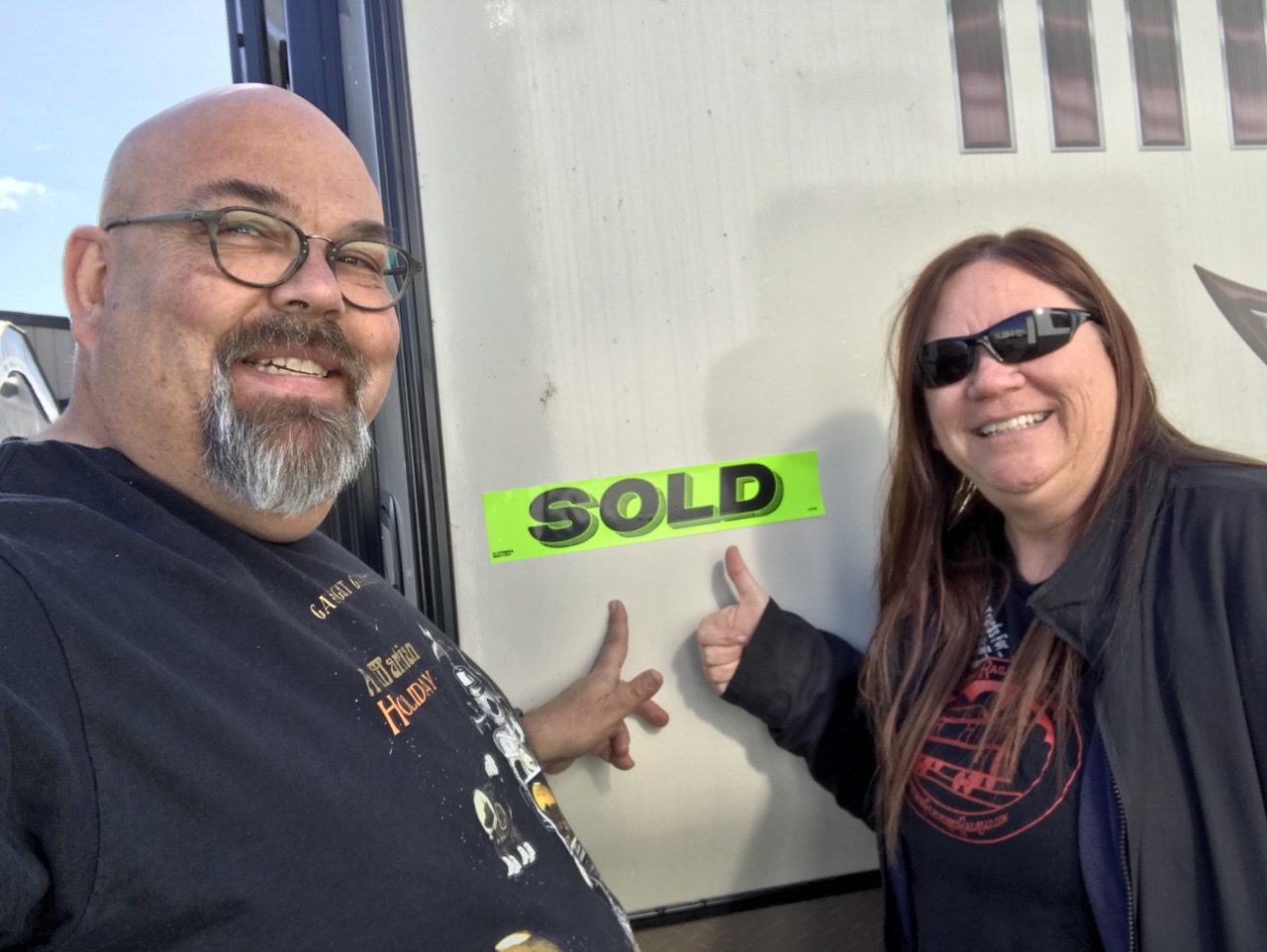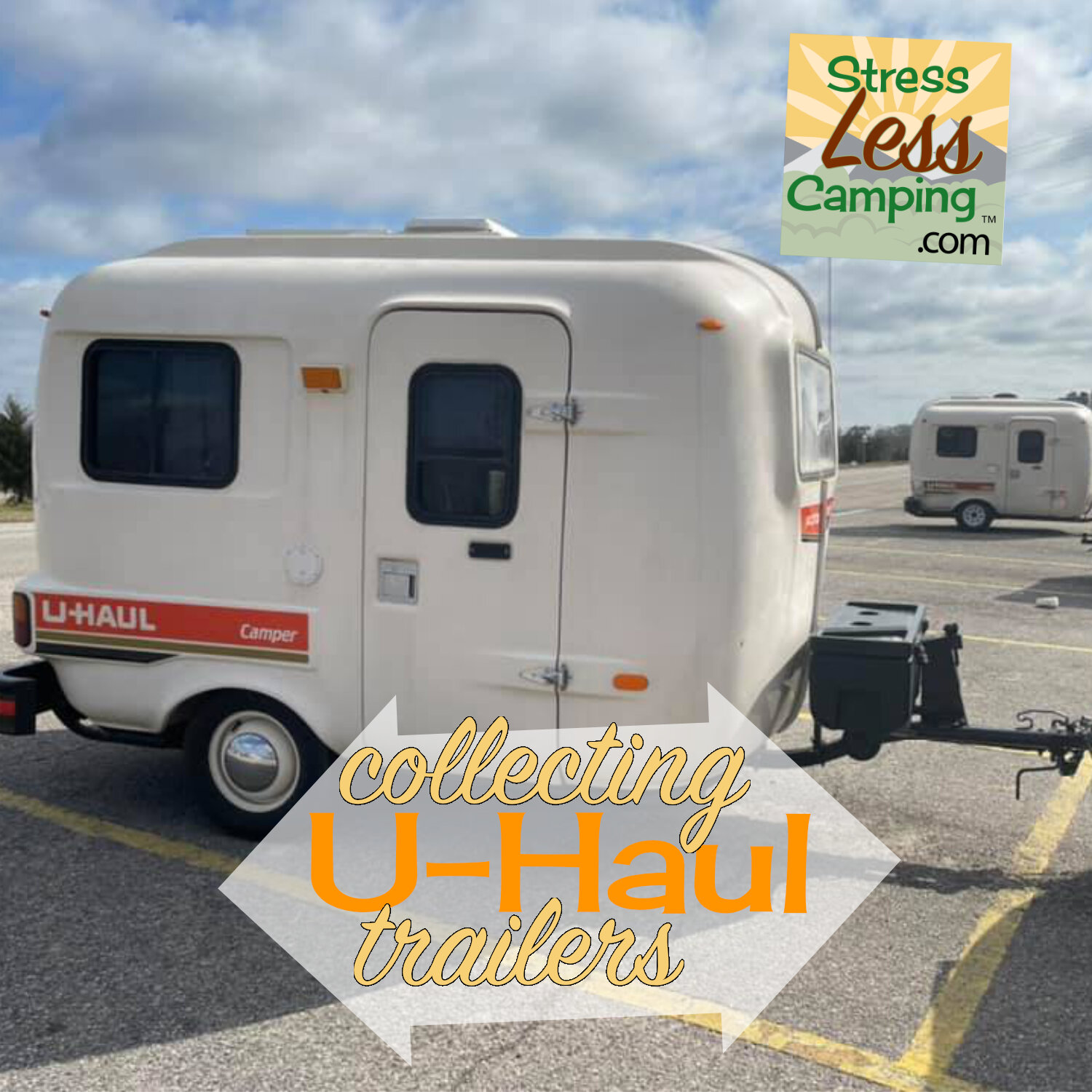The history of Holiday House trailers
What do you do if you have a bunch of seasonal workers who are really good at their jobs and you don’t want to lay them off when things slow down? If you’re David Holmes you go from the fancy fruit business to building travel trailers.
Holiday House travel trailers were literally built by the same crew who would pack those fancy fruit boxes for Harry and David in Medford, Oregon. From January to July there isn’t a lot of demand for fancy fruit baskets and Holmes got the idea of building travel trailers during this season so he wouldn’t have to search for great workers when things got fruity, so to speak.
While he had great success in the fancy fruit boxes Holmes had a passion for travel trailers and decided to use a very modern and stand-out design to make unique towable RVs. Thus Holiday House was born and the design is highly iconic and very, very collectible with a huge wrap-around front window that somewhat mirrors the windshields of cars of the era.
How they’re made
As with most trailers of that time the Holiday House models are skinned in aluminum with a wood frame beneath. The idea was to build a very high quality travel trailer which resulted in prices being higher than the average unit of the time.
Three models were built initially, a 17-, 19- and 24-foot model with the 24 being the sole two-axle unit available. Production began on November 2, 1959.
In 1961 the models changed to an 18-, 20- and 24-foot floor plan and received chassis improvements and larger bathrooms.
A grander vision
But things didn’t stop there as David Holmes had an even grander vision. In 1958 he worked with designer Chuck Pelly, who is also credited with the Scarab race car. Together they came up with a fiberglass-bodied trailer that was referred to as “Star Craft” while in the design phase and was released to the public as the Geographic in 1960.
These were absolutely stunning designs that truly hold up to this day but the price tag was not for the feint of heart at $8,495 - this at a time when the average house was about $13,000. It had been thought that none of these were actually sold at retail owing to the price and there are questions about the number of units produced but in 1962 the showroom model was sold to that showroom’s manager for $5,000, still a princely sum.
Joyce Woodin kept that trailer along with receipts for sales and service and even brochures, knowing she had something special. In 1999 that trailer was restored again and toured RV shows until it got sold at auction for a reported six-figure sum.
Later another Geographic was discovered literally in a barn and was being used to store car parts. This one was sold to restorer Flyte Camp of Bend, Oregon who went through the whole trailer and modernized it with the idea of creating the trailer that the original designers intended.
Holiday House trailers of any kind are a very desirable collectible for a number of reasons. Generally anything that has stand-out styling when new will be popular as a collectible and the Holiday House trailers are no exception. That huge front window makes them an icon and you can spot them instantly at any vintage RV show if you’re lucky enough that one is in attendance.
Recently we did run across a Holiday House trailer owned by Ann Lockett who brought a Holiday House to a vintage trailer rally we attended. Lockett found and restored the trailer herself and says that hers is the most original Holiday House trailer on the west coast owing to the original interior and exterior that haven’t been redone.
Since the design is so iconic there have been copies made in the past decade or so but none of them was really that good. While more than one company has paid homage to the original Holiday House design, they all fall very short in my opinion and really aren’t that iconic, save for a few design details.
Holiday House rides again
However the Holiday House brand has been revived and is again producing trailers, this time in Indiana. In 2017 the first Holiday House Continuation Series trailers rolled off the line with a build quality besting that of the original trailers. Instead of wood framing these new models use aluminum throughout and the company goes so far as to build its own chassis and even steps.
Once again the new models are very iconic and stand out in a sea of similar RVs with questionable swoosh and swirl stickers. These new Holiday House trailers are either clear coated or painted aluminum on the outside but also pay tribute to the trailers of yore with painted steel wheels shod in baby moon hub caps. These newer trailers are a logical buy for those seeking a quality trailer but also an emotional buy due to their style and that big, beautiful front window.
Sales of the original trailers were limited partially due to their seasonal production but also because of pricing and production finally ended in 1962 when the factory burned to the ground. In total only about 200 Holiday House trailers were built and their scarcity and unique style makes them a unique collectible today.








